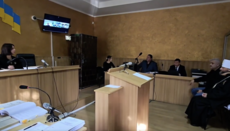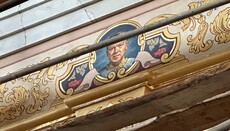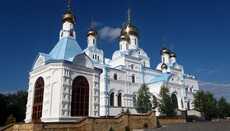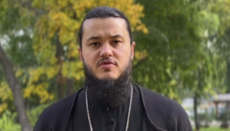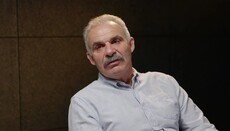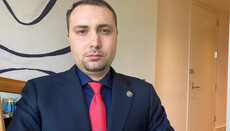Lutsk terrorist confirms that he wanted to seize OCU cathedral

At the trial, Krivosh confirmed the story of his hostages that initially the terrorist wanted to seize the OCU cathedral in Lutsk.
On July 23, 2020, at the trial in his case, Maxim Krivosh, the terrorist who seized the bus, confirmed that he initially wanted to seize the OCU cathedral in Lutsk, and explained that the quarantine prevented these plans to be realized.
He said about his plans to the hostages, from whom the public learned about it.
“I first studied there at a theological seminary, I saw there, I apologize, that spiritual whoring that I saw ... I came there for spirituality ... Therefore, I wanted to make this action, this performance demonstrative, <...>. I wanted to do this in this cathedral,” noted Krivosh. “Because I started from it, I wanted to find the truth, I came there, I wanted to return with my truth to it. But as it is now closed, quarantine and so on – I had to choose an alternative method."
Earlier, the Ukrainian blogger Alexander Voznesensky suggested that the pogroms of churches, allegedly in the name of Christ, influenced the formation of the terrorist's personality. Since Krivosh did not finish his studies even for a year, and after that he committed acts for which he was sentenced to 6 years in prison.
“Apparently, the guy who has been previously brainwashed feels like a patriot and begins to perform ‘feats’. He is sentenced for 6 years. The clerics then tell him that he did a bad thing, but a conflict of contradictions grows inside him: he sees that people mutilate and kill for the sake of seizing a temple, and the clergy approve of this, but what he did is somehow bad and finds no justification," wrote Voznesensky on his Telegram channel.
Krivosh in his book began practically with this – with criticism of the fact that crime in everyday life is condemned, and a crime in war can even be considered heroism, the blogger noted.
“Further, due to the difference in assessments of his deed, he does not find understanding among the clergy and comes to the conclusion that all the clergy are liars and evil, which he also writes in his book,” concluded Voznesensky.
Earlier, Krivosh reproached the leaders of the Churches for not fulfilling his demands.
